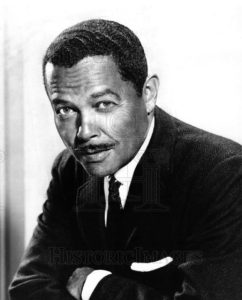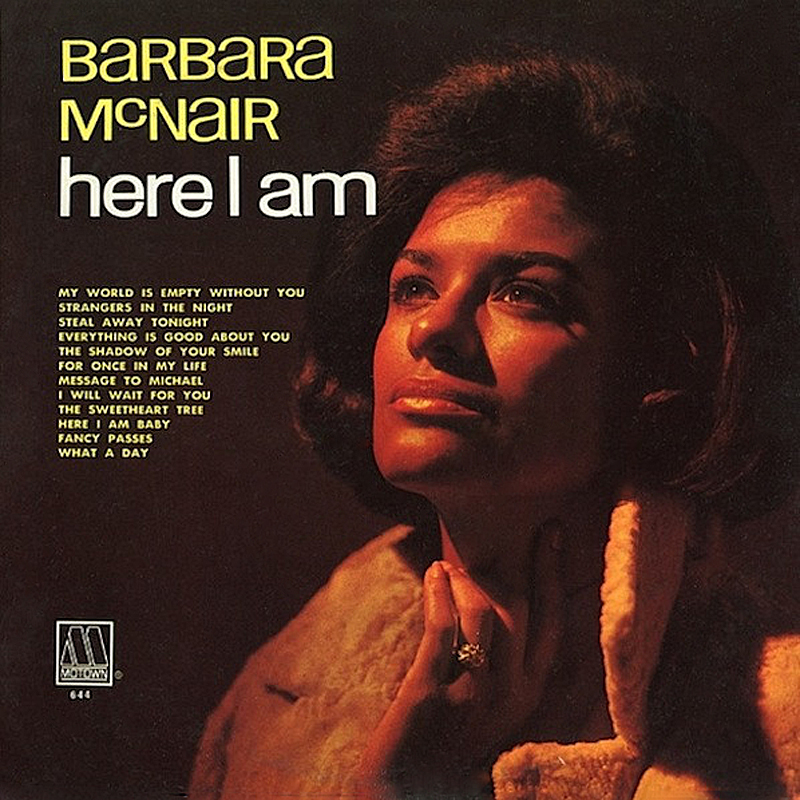 From the MCRFB NEWS archives: 1965
From the MCRFB NEWS archives: 1965
Tamla-Motown Goes Outside To Get Talent; Changes Big Name Policy
DETROIT — The Tamla-Motown organization recently reversed it general policy of creating it’s own big names and has been adding standard acts to it’s own roster, including Billy Eckstine, Tony Martin and Connie Haines. Other big names — most of whom hadn’t had hit records for some time — are expected to be added to the fold.
“One of the reasons these artists hadn’t had hit product lately,” Vice-President and Sale Manager Barney Ales said, “is that they haven’t been recorded with an appeal to the record-buying public. We want to give them our sound.”

The “Detroit Sound” has been tremendously successful; the firm’s batting average is the envy of the industry. As of this week, President Berry Gordy, Jr. can point to 9 singles on Billboard’s Hot 100 charts (another just dropped off last week) and four of these were in the top 20. Two weeks ago, the Detroit recording firm had 12 singles on the charts. The label also now has seven LP’s in the top of the chart. “Where Did Our Love Go,” by the Supremes, has been on the LP charts for 51 weeks.
What makes this all fantastic, however, is that the firm released very few singles so far this year — only 32, according to Phil Jones, marketing and research director for Motown. “Five of these records were million-sellers,” he said, “Ninety percent of these Motown Detroit recordings hit the charts.”
Five singles turned out by Gordy reached No. 1 on the Top 100. These included three by the Supremes, one by the Four Tops and one by the Temptations. Jones said that “I Can’t Help Myself” by the Four Tops sold a million and a half records. “But we have 10 or 12 artists that constantly have hits,” Jones said. “I feel we’ve made more artists than any other label.”
It was felt that the present splurge of signings, which included Jack Soo, the Lewis Sisters and Barbara McNair, the firm was branching more into the album product. Jones said that Tamla-Motown first intended to give these new signings a hit single. “They seem to be able to sell more albums that way.”
“We’ve been putting out a limited number of albums — 12 or so this year. Out of that, 10 have been on the charts and seven are still on,” Jones had said. “All these albums have proper timing — the artists are hot. I don’t consider it any sense to turn out catalog product; it’s to difficult to compete with the budget lines.
What we’re doing in signing people with talent that will fit in with material we’ve already got on hand. Our success can be attributed in part to the great producers we have working for us. For instance, the songwriting and producing team of Brian Holland, Eddie Holland and Lamont Dozier have turned out six or seven releases this year, of which four have reached the No. 1 position on the chart and two or three reached the top 10.”
Smokey Robinson, the lead singer with the Miracles, also writes and produces, and Jones said that studio music director Mickey Stevenson “has also come up with quite a few hits.”
The label recently expanded overseas, and Jones and Ales had left this past Sunday, August 29, to meet with EMI officials in England to discuss establishing closer ties and more effective marketing for the label. “What we hope to do,” Jones stated, ‘is make all our artists as successful in England as the Supremes are over there.” END
___
(Information and news source: Billboard; September 4, 1965)

![]()
